– Bachelor's degree in social or human sciences
- Successfully passing the stages of the competition
– Bachelor's degree in social or human sciences
- Successfully passing the stages of the competition
Four years
Integrative Psychotherapy (EAP Full Accreditation Standard)
- The presenting organization of the program is the only EAPTI (Accredited European Institute of Psychotherapy) in Georgia - International Academy of Mental Health and Integrative Psychotherapy.
- The author's program was developed in Georgia by local and European experts and is accredited by the European flagship of the field, the European Association for Psychotherapy and the European Association for Integrated Psychotherapy (EAIP).
- The training process and practical work are conducted by local and foreign experts with international accreditation (ECP, ECIP).
- The program allows you to obtain triple certification by direct awarding: European Certificate of Psychotherapy ECP (European Certificate of Psychotherapy), ECIP (European Certificate for Integrative Psychotherapy) and EAPTI - certificate of the International Academy of Mental Health and Integrative Psychotherapy.
- Gives you the knowledge and skills of purposeful and academic psychotherapeutic work, and this is a prerequisite for obtaining a therapeutic effect with the client.
Integrated psychotherapy is a valid psychotherapy modality recognized by the European Association for Psychotherapy (EAP), the World Council of Psychotherapy (WCP), the European Association for Integrative Psychotherapy (EAIP), the American Psychological Association and other authoritative international professional societies.
The integrated approach provides for combining elements of different psychotherapeutic schools (concepts, techniques) in the treatment process. It also refers to the psychotherapeutic process of personality refinement, which takes place through the refinement of emotional/affective, cognitive, behavioral and physiological spheres.
5. The specialist does not have to treat the client and himself within the framework of one specific approach, he has the opportunity to take into account the individual characteristics of the client and to solve each specific therapeutic task, to use the tools of different modalities at his disposal as necessary and expedient.
Features of integrated psychotherapy are:
Unlike other classical approaches, and cooperates with the therapist. His individual characteristics, values, credentials and degree of motivation are fully taken into account.
– Integrated Psychotherapy
– Psychodynamic psychotherapy, psychosynthesis
– Gestalt therapy
– NLP (therapeutic model)
– Cognitive behavioral therapy (CBT)
– Hypnotherapy (Milton Erickson's Hypnotherapy)
– Short-term strategic therapy, psychodrama therapy)
– Psychotherapy of sexual dysfunctions
All this will help you work effectively with patients!
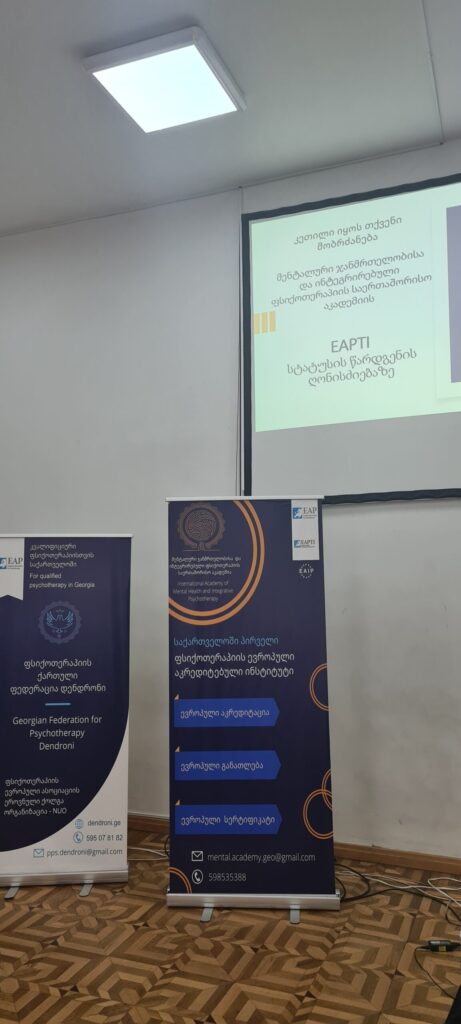
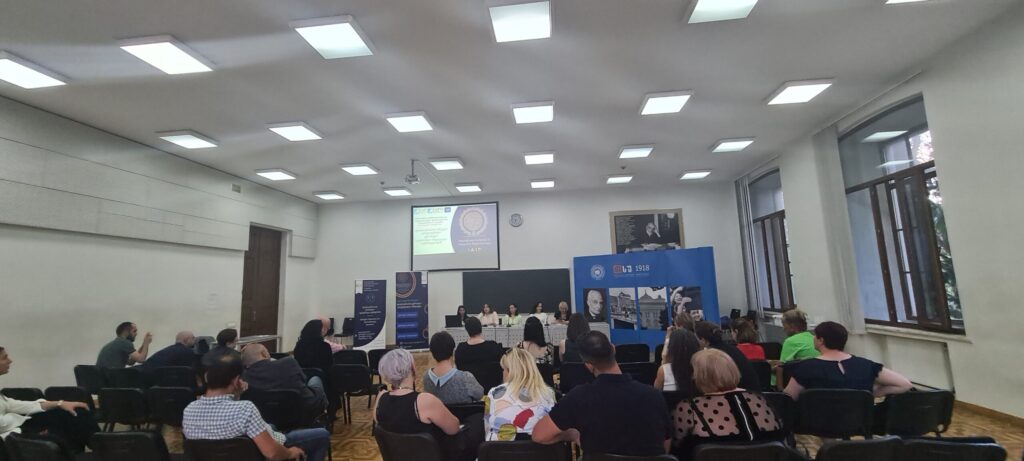

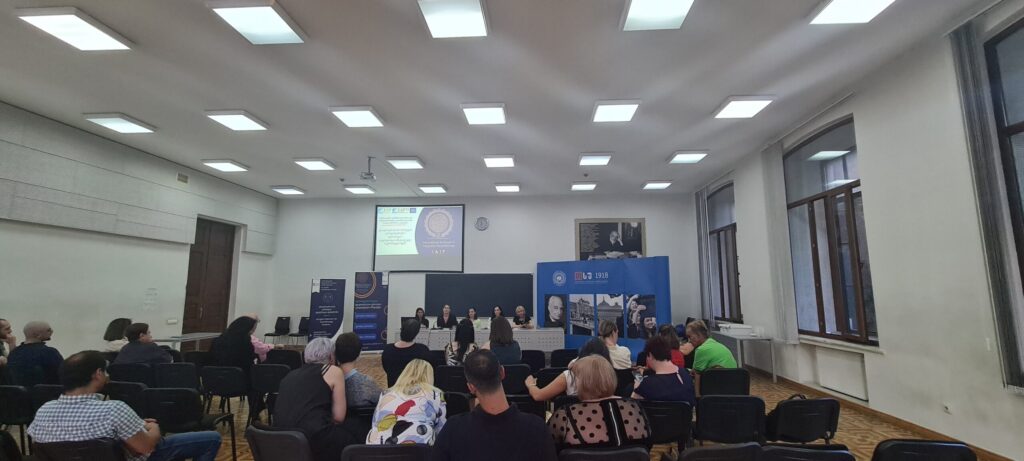
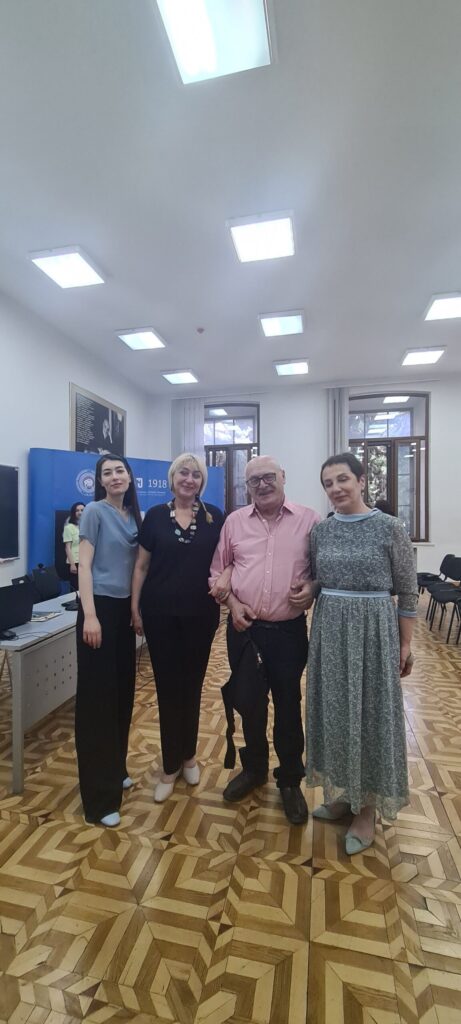
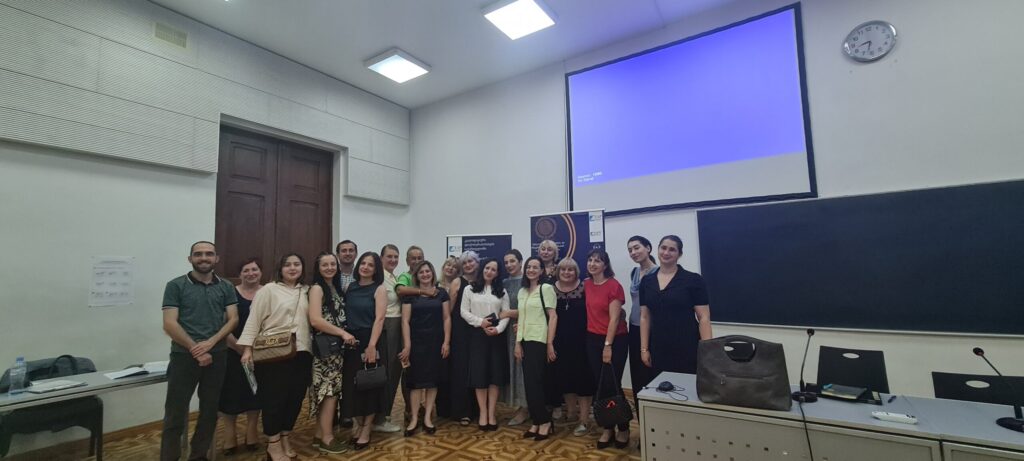
Is a student of the integrated psychotherapy training program who has passed the theory of the mentioned program:
220 academic hours of methodology
100 hours of group therapy
At least 12.5 hours of individual therapy
—————————
Is a student of the integrated psychotherapy training program who has passed the theory of the mentioned program:
440 academic hours of methodology
200 hours of group therapy
At least 25 hours of individual therapy
—————————
Is a student of the integrated psychotherapy training program who has passed the theory of the mentioned program:
660 academic hours of methodology
200 hours of group therapy
At least 37.5 hours of individual therapy
Clinical practice with supervision 150 academic hours
Supervision 75 academic hours
—————————
Is a student of the integrated psychotherapy training program who has passed the theory of the mentioned program:
880 academic hours of methodology
200 hours of group therapy
At least 50 hours of individual therapy
Clinical practice with supervision 300 academic hours
Supervision 150 academic hours
—————————
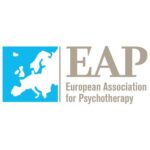
The Academy is the only EAPTI-accredited psychotherapy training institute of the European Association of Psychotherapy from Georgia. The Academy's psychotherapeutic educational programs are accredited by the European Psychotherapy Association, which allows graduates to apply for ECP certification through direct award.
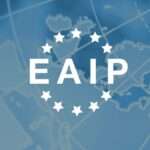
As a full and accredited member, the Academy joins the leading group of integrative psychotherapy organizations - the European Association of Integrative Psychotherapy. The Association in EAP enjoys the status of a European wide accreditation organization and ensures the implementation of the best ethical and clinical standard of integrative psychotherapy in Europe.

The Academy is part of the Georgian Professional Psychotherapy Society - the national umbrella organization of the Georgian Federation of Psychotherapy. unites under the motto "for qualified psychotherapy in Georgia" and supports full harmonization of the Georgian school of psychotherapy with the European standard of the field.
Netherlands Academy of Psychotherapy Amsterdam 2019
Ratification of accreditation of pan-European program of integrated psychotherapy

Nino Kobakhidze, Administrative Head of the International Academy of Mental Health and Integrative Psychotherapy, Hayward Wilkinson, Vice President of the European Association of Integrative Psychotherapy, Bruno van den Bosch, President of the European Association of Integrative Psychotherapy, Marine Begashvili, Academic Head of the International Academy of Mental Health and Integrative Psychotherapy, Joanna Hewitt Evans, European Association of Integrative Psychotherapy Secretary General of the Association
At the lecture, the specialist will talk about the theoretical foundations, basic theses and work mechanisms of the studied subject. You will have the opportunity to ask them questions of interest to you and get competent answers.
As a result you will get:
- deep theoretical knowledge in 8 recognized modalities of psychotherapy (psychodynamic psychoanalysis,
psychosynthesis, gestalt therapy, NLP (therapeutic model), cognitive-behavioral therapy (CBT),
hypnotherapy - classical and Milton Erikson's hypnosis, short-term strategic therapy,
psychodrama therapy), psychosexology and personality psychology;
– You will make discoveries about yourself and clients;
– You will find answers to current questions;
- You will receive electronic literature and materials prepared by specialists;
- You will receive a certificate confirming the completed accredited hours.
At the seminar, you will hear and absorb the experience of specialists and experts
of the European standard and ways of dealing with difficulties and solving dilemmas, you will solve your own dilemmas, you will hear
and process the protocols of psychotherapeutic exercises. Also, you will share it in interactive mode
you will share your personal and professional experience with specialists and colleagues, discuss what you have read
literature in theoretical and practical terms.
As a result you will get:
- You will find effective ways out of difficulties arising during practice;
- You will study time-tested, effective psychotherapeutic exercise protocols;
- You will share your experience with colleagues and share their experience, which will increase your
efficiency;
- You will get practical application algorithms of theoretical knowledge
- You will receive a certificate confirming the completed accredited hours.
At the training, specialists present specific algorithms of integrated techniques
of various psychotherapeutic modalities - step-by-step schemes with strategic questions and main emphasis. During the master class, you will perform these techniques in a group and share your own work experience.
In the training and workshop format, you will perform the presented techniques, if necessary, you will ask questions
and receive individual feedback on the performed exercise, there will be a discussion, if you wish, you will present a case on which the discussion will take place.
As a result you will get:
– You will acquire the skills of conducting psychotherapy ethically and effectively;
– Algorithms and schemes of time-tested therapeutic methods and techniques,
which you will put into practice immediately after the training;
– You will understand the strengths and weaknesses of your own work, you will outline the ways
to improve the weaknesses and turn them into strengths;
– You will share your experience with colleagues and share their experience, which will significantly increase
your efficiency, competences and self-confidence;
- You will acquire valuable professional contacts;
- You will receive a certificate confirming the completed accredited hours.
You will undergo clinical practice on an individual schedule in a licensed medical institution
in a drug clinic, where you will get to know the operation of the clinic, work with a multidisciplinary team on a specific case,
conduct anamnestic, clinical and motivational interviews with patients, conduct therapeutic sessions with them,
get to know their family members.
The activities carried out in the clinic are supervised by the European Association of Psychotherapists
holding the certificate of the European Association of Psychotherapists, ECP.
As a result you will get:
- You will acquire communication skills with patients and their family members;
- Improve anamnestic, clinical and motivational interviewing skills;
- Teamwork skills;
- Experience in clinical work;
- Assessment of work efficiency by an experienced supervisor;
- You will receive information about the completed clinical practice and supervision.
During group therapy, a psychotherapist certified by the European Association of Psychotherapists,
ECP, will conduct group therapy meetings (200 hours) only for students of the program, in a closed
group.
As a result you will get:
- You will process and get rid of current psychological difficulties;
- You will discover and realize your own creative potential;
- You will increase your emotional intelligence;
- You will gain internal balance;
- You will get more satisfaction from relationships and life;
- You will learn a time-tested and effective method of psychotherapy;
- You will receive a notification about the passed therapeutic hours.
During individual therapy, you will have therapeutic sessions (50 hours) with a psychotherapist certified by the
European Association of Psychotherapists, ECP.
As a result you will get:
- You will process and get rid of current psychological difficulties;
- You will gain internal balance;
- You will get more satisfaction from relationships and life;
- You will receive a notification about the passed therapeutic hours.
Working with clients/patients in parallel with a psychotherapist holding the certificate of the European Association of Psychotherapists,
ECP will supervise your work - in a professional circle you will discuss the difficulties that arise in the process of psychotherapy,
you will do self-reflection, you will outline the ways out of the difficulties that arise and
you will understand their causes.
As a result you will get:
- You will be able to manage the case in a consistent and organized manner;
- You will be able to recognize and manage your own emotional responses during the therapy process
- You will further deepen the knowledge obtained as a result of teaching the theory and methodology (finding alternative ways of intervention,
determining the direction, protecting psychoecology, etc.);
- You will be able to conduct the case in full compliance with the principles of ethics.
You will be provided with electronic literature and other learning materials (presentation, handout, etc.) that you will work
on in between lectures/seminars and trainings.
As a result you will get:
– You will consolidate the knowledge gained at the lecture/seminar and training;
– You will generate questions and opinions, which will be answered by
experts and specialists involved in the program.
By participating in a closed social media group and chat, where communication with program leaders and group members is provided, prompt
sharing of questions, comments, opinions, emotions, reflections related to organizational and other aspects of
group work, and receiving feedback from specialists involved in the learning process.
As a result you will get:
- The ability to quickly organize and exchange information;
- Support of group members;
- Operational feedback;
- Insights and reflections.
You will be given an individual study plan, which will define the annual program -
time, duration, number of hours, specialist.
As a result you will get:
– An easy way to organize your time;
– A clear view of the course and dynamics of the educational process.
who wish to acquire new academic knowledge and qualifications for psychotherapy.

Academic head of the organization, national delegate of the European Association of Psychotherapy in Georgia; Doctor psychotherapist with state certification of Georgia; ECP Psychotherapy European Certificate Holder, ECIP Psychotherapy European Certificate Holder; Expert of the membership committee of the European Association of Integrative Psychotherapy.
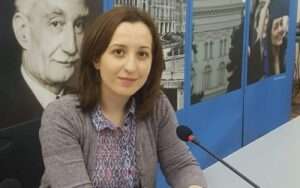
Head of the program "Mental Health Educational Programs for Georgia". Board member of the Georgian Federation of Psychotherapy. Member of the scientific-research committee of the European Psychotherapy Association. European Certificate of Integrative Psychotherapist (ECIP).

Academy invited trainer. Chief Supervisor of the Metanoia institute in London. Psychotherapist (ECP), integrative approach, with the right to practice and supervise within the European Union (17 years of practice).
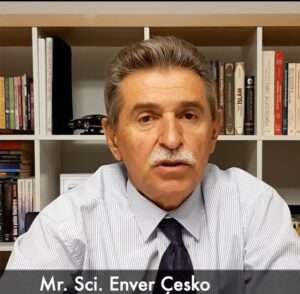
Academy guest trainer. Board member of the World Council of Psychotherapy (WCP). President of the Psychotherapy Association of Kosovo. Author of about 150 scientific articles. Member of the Board, Membership Committee and Ethics Committees of the European Association of Psychotherapy. ECP – certified psychotherapist of the European Association of Psychotherapists, WPC – certified psychotherapist of the World Association of Psychotherapy.
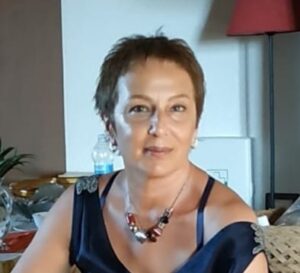
Doctor, Psychotherapist, Clinical Director of Tbilisi Children's Infectious Disease Hospital, licensed by the State of Georgia, 2019-2020. Acad. N. Clinical marketing expert of Kipshidze Central University Clinic. 2013 - 2019 Deputy Director of Tbilisi Children's Infectious Disease Hospital in the medical field.

Legal advisor of the Academy. Doctoral student of Tbilisi State University. Master of Laws of the University of Strasbourg. Master of Law of Tbilisi State University. A lawyer of general specialization.
EAPTI accreditation is the highest educational category awarded by the European leader of the field, the European Psychotherapy Association. Only the International Academy of Mental Health and Integrative Psychotherapy owns the category from Georgia. This accreditation standard allows graduates of the program to apply for and obtain the European Certificate in Psychotherapy ECP by direct award.
The program is accredited by the European leader of the field, the European Association for Psychotherapy EAP, and the European Association for Integrative Psychotherapy, European Wide Accreditation Organization. The high academic status of the graduates of the program is confirmed by the cooperation between the European Association of Psychotherapy and the World Council of Psychotherapy around the world. The education of the graduates of the program is fully recognized by authoritative professional societies and allows them to participate in the activities of leading organizations in the field as full members.
In order to successfully complete the program, it is necessary to take full hours of the program, including, but not limited to, attending the lecture component, working on the literature, completing written assignments, and successfully completing the examination and research component and the clinical practice component.
ECP – European Certificate of Psychotherapy is a certification standard developed by the European leader of the field, the European Psychotherapy Association, which confirms the specialist's compliance with the European standard of psychotherapist's basic competencies.
In order to obtain the ECP certificate, a proven education as a psychotherapist is required, which includes all the competencies, including the theoretical and practical components, which are necessary for the formation of a person as a psychotherapist. The minimum duration of psychotherapist education is 4 post-diploma years. The ECP certificate can be obtained by direct award only after completing a program accredited by the European Association of Psychotherapy with the recommendation of the EAPTI institution.
Information about ECP specialists is reflected in the European Register of Psychotherapists and is available to any interested person, potential employer and clients. After awarding the certificate, the specialist will also be given a printed version of the certificate.
Anyone who already holds a bachelor's degree in the social or human sciences.
The pan-European standard for psychotherapy education includes at least four years of training at postgraduate (after a bachelor's degree) level.
The study of psychotherapy implies a combination of general and special education, which includes knowledge of the functioning of the psyche and knowledge of the techniques of intervention in the psyche, which is focused on the therapeutic result, including the theoretical framework of the intervention, practical skills, and knowledge of the peculiarities of ethical activity.
Essential elements of psychotherapeutic education are:
– Theory and methodology;
– Work on literature;
– Clinical practice under supervision;
- Anxiety or decreased ability to concentrate;
- Problems coping with stress or getting out of stressful situations;
- Mistrust and shyness;
– Depression, low mood, sadness, feeling of emptiness;
– Mood swings;
– Difficulty establishing or maintaining relationships, or fear of starting a new relationship.
– Sexual problems;
– Any kind of loss: job loss, divorce, physical loss;
– Eating disorders;
– Desire to self-harm;
– Obsessive behavior;
– Panic attack and phobia;
– Various addictions and others.
Psychology and psychotherapy are two independent fields. To master each of them, it is necessary to receive appropriate education. A psychologist can work as a psychotherapist only after receiving the relevant post-graduate education, which includes 1400 specialized hours after obtaining the qualification of a psychologist.
Psychotherapy and psycho-counseling use different methodologies and working mechanisms of intervention in the human psyche. The psychoconsultant is obliged to refer the individual to a psychotherapist if his needs are beyond the qualification framework of psychoconsultation.